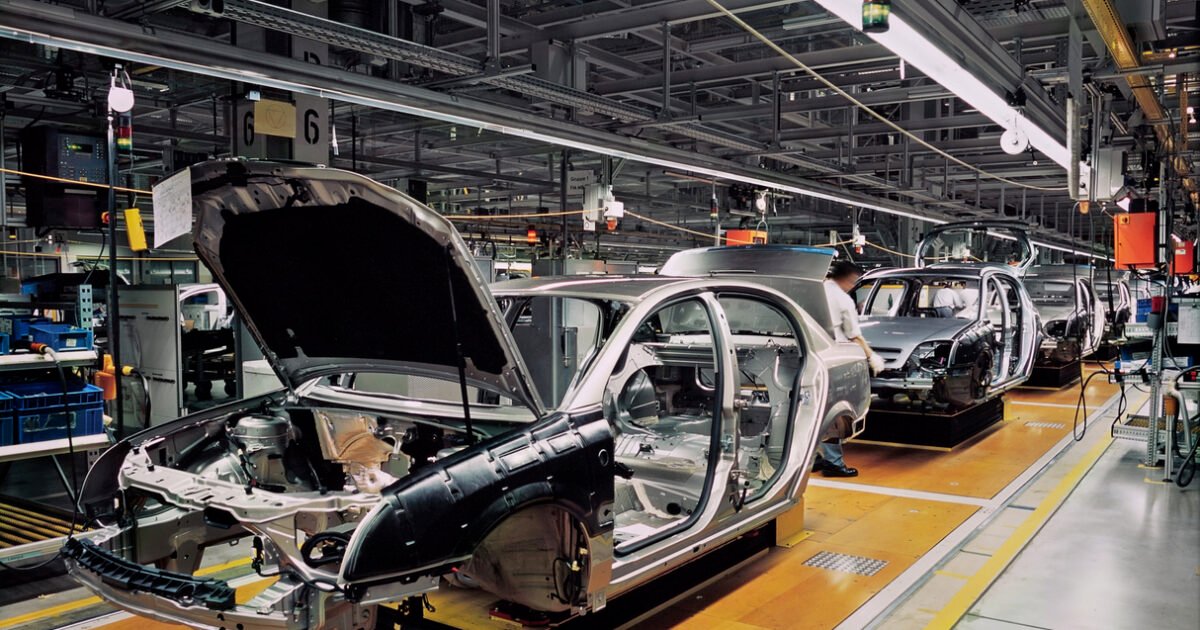The Future of Car Production: Sustainable Manufacturing
Learn about the green practices and smart technologies that are redefining automotive production for a sustainable future.

In the ever-evolving automotive landscape, sustainable automotive manufacturing has emerged as a pivotal approach that's redefining the industry. This approach embraces green practices and smart technologies to ensure a more eco-friendly and sustainable future.
A Peep Into Sustainable Automotive Manufacturing
Traditionally known for its hefty carbon footprint, the auto industry has been experiencing a significant shift towards sustainable manufacturing. From adopting green practices in operations to implementing smart technologies in production processes, the industry is earnestly striving to reduce its environmental impact.
Table of Contents
- Current Trends in Sustainable Automotive Manufacturing
- Transitioning to Green Practices in Automotive Manufacturing
- Exploring Smart Technologies in Sustainable Automotive Manufacturing
- Innovation: The Key to Future-Proof Sustainable Manufacturing
- Challenges and Opportunities in Sustainable Automotive Manufacturing
- What Does the Future Hold for Sustainable Automotive Manufacturing?
Current Trends in Sustainable Automotive Manufacturing

Bringing innovation to the forefront, current trends in sustainable automotive manufacturing are driving significant changes in the industry. From innovative production methods to energy-saving practices, let's delve into these dominant trends:
- Circular Economy: The automotive industry is keenly embracing the circular economy concept which entails resource efficiency, waste minimization, and product lifecycle extension.
- Energy Efficiency: Improving energy efficiency in production processes directly impacts sustainability. Investing in energy-saving equipment and optimizing process energy configuration are common approaches.
- Green Supply Chain Management: The industry is now more focused on developing green supply chains which includes environmentally friendly material sourcing, waste reduction, and recycling.
Transitioning to Green Practices in Automotive Manufacturing

Embracing green practices is at the heart of the shift towards sustainable automotive manufacturing. Let's explore some key strategies aimed at making this transition effective and impactful:
Resource Optimization
Minimizing waste and optimizing processes are fundamental to resource efficient operations. Manufacturers are implementing waste management programs, water-recycling processes, and clean production technologies to bolster resource optimization.
Reducing Carbon Emissions
Efforts towards reducing carbon emissions are gaining momentum. To tackle greenhouse gas emissions, manufacturers are transitioning towards renewable energy sources and cleaner fuel types for production and transportation needs.
Exploring Smart Technologies in Sustainable Automotive Manufacturing

Smart technologies are playing a major role in realizing the vision of sustainable automotive manufacturing. Through digitalization, automation, and innovation, these technologies are shaping the future of car production:
- Data Analytics: Automotive manufacturers are leveraging data analytics to gain actionable insights into their operations, enabling them to improve efficiency, optimize resources, and lessen environmental impact.
- Additive Manufacturing: Also known as 3D printing, additive manufacturing facilitates precision in design, reduces waste, and saves energy, making it a popular choice among manufacturers who aim for sustainability.
- Internet of Things (IoT): IoT is driving connected, smart factories, enabling real-time tracking and enhancing operational efficiency.
To fully comprehend the impact of these technologies, we need to dive deeper into some innovative examples of their applications in automotive manufacturing.
Data Analytics in Action: An Example
Companies like GM have used data analytics to reduce energy use and carbon emissions at their manufacturing plants. For instance, GM’s Ohio and Indiana plants leveraged smart sensor technologies and data analytics to reduce energy consumption by 25% and thereby cut carbon emissions significantly.
This successful application of data analytics is just one example of how smart technologies are propelling the shift towards sustainable automotive manufacturing.
Innovation: The Key to Future-Proof Sustainable Manufacturing
Against the backdrop of mounting pressures to curtail environmental impact, the auto industry is leveraging innovation to make car production more sustainable. From developing advanced materials to rethinking manufacturing processes, innovation is spearheading the industry's transformation.
Lightweight Materials
Lightweight materials are at the core of next-gen vehicle design. Replacing traditional, heavy materials with lightweight alternatives, such as aluminum and high-strength steel, significantly improves energy efficiency, driving reductions in carbon emissions. Cutting-edge research reveals opportunities like composite-based materials with a remarkable strength-to-weight ratio.
Rethinking Assembly Processes
Manufacturers are reimagining assembly lines to fit a more sustainable format. Innovative assembly sequences, lower-impact paint processes, and reduced welding requirements are some of the changes seen on the shop floor that contribute to a greener automotive production landscape.
Challenges and Opportunities in Sustainable Automotive Manufacturing
Although the path to sustainability presents some tall obstacles, it also offers exciting opportunities for the auto industry to redefine itself. Let's see what lies on both sides of this coin:
- Challenges: The shift towards sustainable practices often demands hefty investments in new technologies, ample research, and complex redesigning of production processes. Additionally, challenges lie in regulatory restrictions, materials sourcing, and lifecycle management.
- Opportunities: Asides from benefiting the environment, sustainable manufacturing offers a competitive advantage for auto manufacturers, reinforcing their corporate social responsibility and appealing to eco-conscious customers. Also, it opens doors to innovation, pushing boundaries in materials science, production technology, and supply chain management.
What Does the Future Hold for Sustainable Automotive Manufacturing?

As the auto industry moves forward, the trajectory towards sustainable practices is expected to continue. Here are some predictions about the future of sustainable automotive manufacturing:
Increased Use of Eco-Friendly Materials
Given the success of lightweight materials in enhancing fuel efficiency, the use of eco-friendly, renewable, and recyclable materials is expected to grow. Think bio-based materials, recycled plastics, and carbon fiber composites.
Digitalization of Production
With data analytics and IoT making strides in manufacturing, we can anticipate a more connected, informed, and efficient production environment. Smart factories with real-time quality control, predictive maintenance, and automated logistics are likely to become more commonplace.
Green Supply Chains
Green supply chains factor in not just the manufacturing process, but also the entire product lifecycle – from materials sourcing to the recycling process. Driven by sustainability goals, manufacturers will continue to invest in making their supply chains greener.
Thus, the future of the automotive industry looks bright, promising, and certainly more sustainable. By taking strides on this path, the industry has a chance to become a transformational leader in the global push for sustainability.
What's Your Reaction?































































